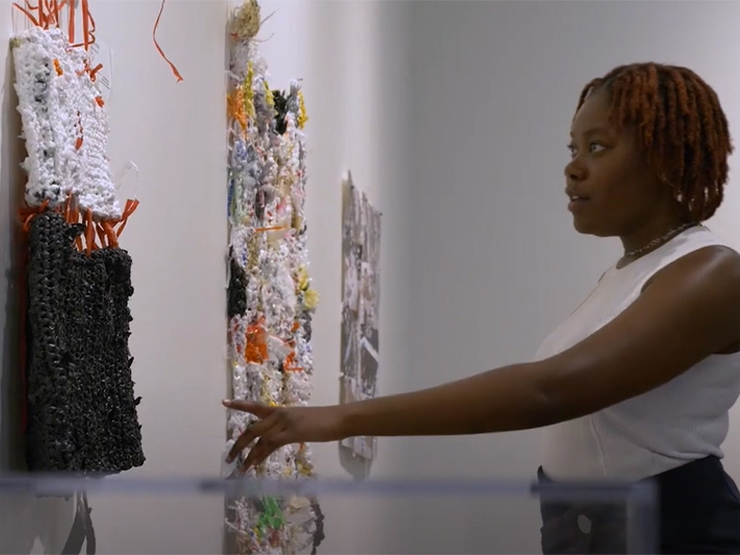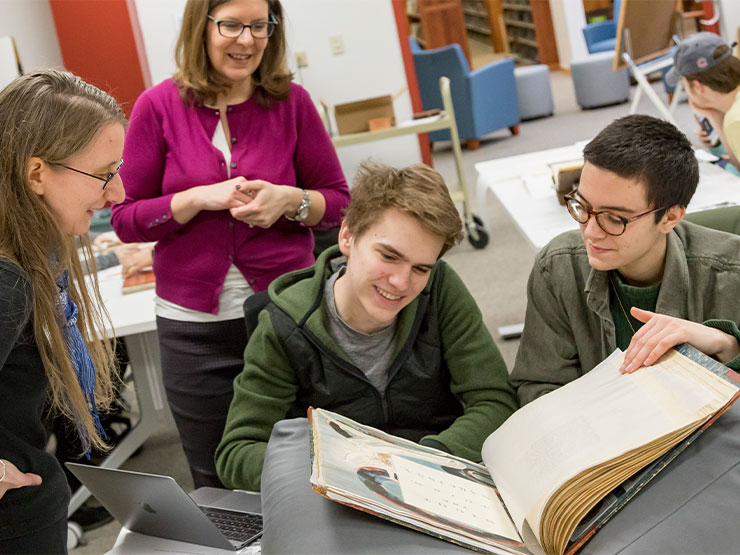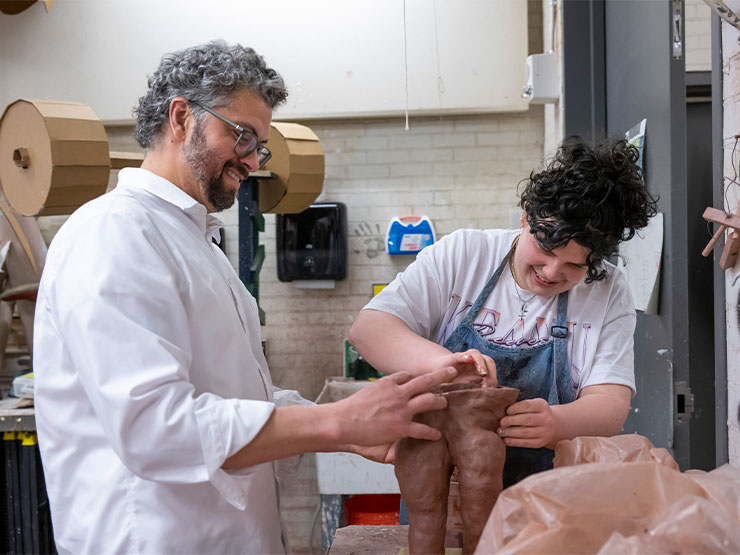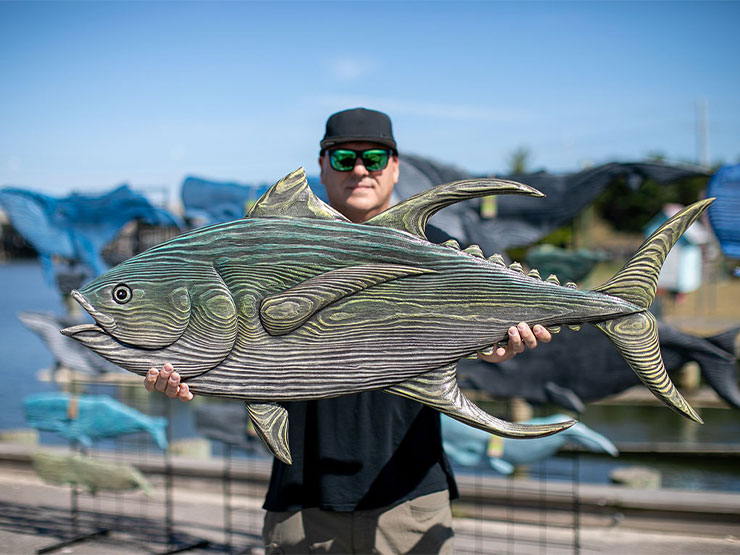
Opportunities With Impact
Find out how Muhlenberg transforms the study of art history into an active and experiential learning journey.

Visual creative works reflect societies, shape cultures and spark meaningful change. Art historians help make sense of art as well as human cultures past, present and in the act of being created.
As an art history student at Muhlenberg, you’ll explore art through social, political, economic, religious, racial and aesthetic lenses. You’ll practice a variety of art historical methodologies, from broad historical surveys to detailed analyses of specific periods. You’ll hone your capacities for highly valued and broadly applicable skills including visual analysis, evidence-based writing, oral argumentation, critical thinking and creative expression.
Muhlenberg’s art faculty are not only accomplished academics and artists; they’re also dedicated mentors who will encourage you to explore new boundaries and support you in achieving success on your own terms. Our faculty practice global and anti-racist approaches, upholding the power of art to enact social change.

Find out how Muhlenberg transforms the study of art history into an active and experiential learning journey.

You’ll work closely with the Muhlenberg Art Department’s full-time and visiting faculty members, whose diverse skills and interests will open new perspectives and possibilities in the classroom and beyond.

Discover the fields of study and career paths where our art history alumni have journeyed to after Muhlenberg.
Muhlenberg welcomes 10 new faculty members to the college this fall, teaching in the areas of chemistry and biochemistry, media and communication, art, dance, mathematics, psychology, and public health.
Sciarrino, a student-athlete on the cross country and track teams, is contributing to projects that are seen by thousands of people.
As head of brand for Epic Games, Rampulla was instrumental in many of the video game’s most viral moments.
The College received a grant to explore the founding of the original Allentown Public Library, which opened in 1912. Sophia Framm ’24 and Yuyang (Hector) Chen ’23 worked as research assistants on the project.